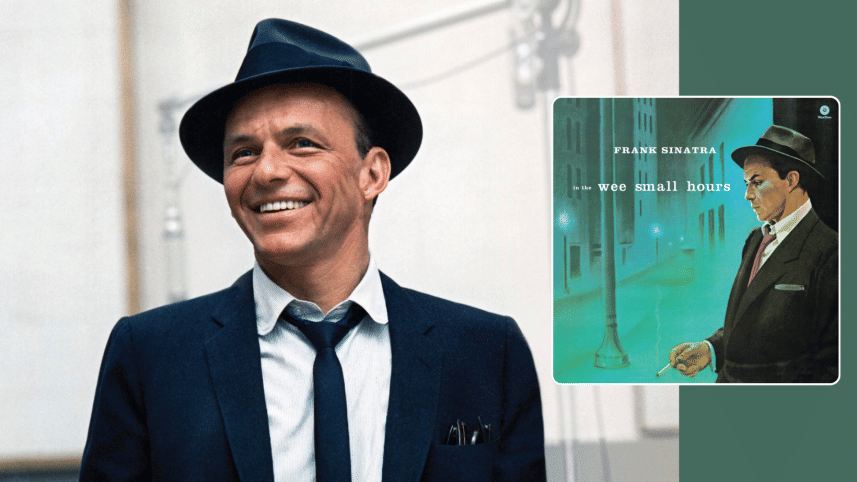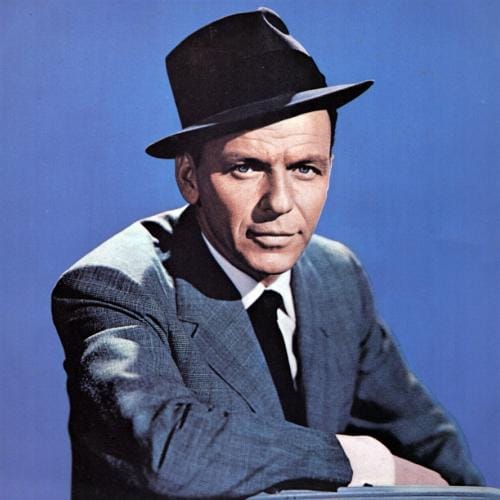Sinatra’s ‘In the Wee Small Hours’ returns on vinyl for 70th anniversary

Frank Sinatra's 1955 classic "In the Wee Small Hours" will be reissued on November 14 as part of Blue Note's "Tone Poet Audiophile Vinyl Series", marking seven decades since its original release. Widely described as Sinatra's "melancholy masterpiece," the record was inducted into the Grammy Hall of Fame in 1984 and is celebrated as one of the first true concept albums in popular music.
Arranged by Nelson Riddle and produced by Voyle Gilmore, the album captured Sinatra at his most intimate and vulnerable, weaving torch songs and ballads into a cohesive meditation on loss and longing. Its influence has endured, inspiring generations of musicians—from Linda Ronstadt's 1983 collection "What's New" to countless other mood-driven works.

"In the Wee Small Hours" was Sinatra's third release with Capitol Records, following "Songs for Young Lovers" (later added to the National Recording Registry) and "Swing Easy!" (both 1954). Unlike most albums of the era, it was conceived as a unified body of work rather than a set of singles. Originally issued on two 10-inch LPs as well as a single 12-inch disc, it helped establish the 12-inch format as the industry standard for pop music, consigning the 10-inch record to history.
The record climbed to No. 2 on the Billboard chart—predating the Billboard 200—and solidified Sinatra's remarkable comeback. Having signed with Capitol in 1953 and won an Academy Award the following year for "From Here to Eternity", he used the album to stake his claim as a reinvented artist, no longer just a crooner but an interpreter of emotional truth.

The new "Tone Poet" edition, produced by Joe Harley, has been mastered by Kevin Gray from the original analog tapes. Pressed on 180-gram vinyl at Record Technology Inc. (RTI), it comes housed in a deluxe gatefold sleeve, complete with session photographs by William Claxton and Ken Veeder and a new essay by Rita Kirwan.
Sinatra would return to the concept album repeatedly, refining the form in releases such as "Songs for Swingin' Lovers!" (1956), "Where Are You?" (1957), "Frank Sinatra Sings for Only the Lonely" (1958), and "No One Cares" (1959).

Often hailed as the greatest of traditional pop vocalists, Sinatra became the first artist to win three Album of the Year Grammys and, in 1965, was awarded the Grammy Lifetime Achievement Award at the age of 50. He later received the Kennedy Center Honors in 1983. Sinatra died in 1998 at 82, leaving behind a legacy that continues to shape the sound and sensibility of modern popular music.
The 16-track "In the Wee Small Hours" opens with the haunting title song and includes definitive renditions of standards such as Duke Ellington's "Mood Indigo", "Rodgers" and Hart's "Glad to Be Unhappy" and "It Never Entered My Mind", Hoagy Carmichael's "I Get Along Without You Very Well", and Cole Porter's "What Is This Thing Called Love?"



 For all latest news, follow The Daily Star's Google News channel.
For all latest news, follow The Daily Star's Google News channel.
Comments